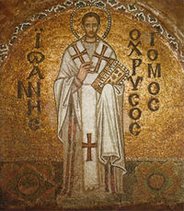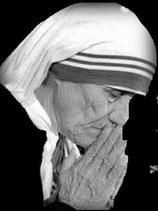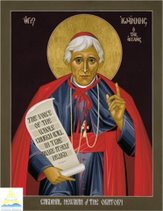Article by Philosopher Roger Scruton on the Gay Adoption Issue
Of course the powers that be didn't listen but this article is a very cogent defense of the traditional position. And in time it makes one think that the short-sightedness of the present political climate will have to be corrected for the good of society later on down the road. I mean if actually we want human society to survive and all that. In the end, political correctness isn't everything. And a policy and politics solely based on it will never work.
The Sunday Telegraph, 28 January 2007
Western societies have, in recent decades, undergone a radical change in their attitudes to homosexuality. What was once regarded as an intolerable vice is now regarded as an "orientation", no different in kind, though different in direction, from the inclinations that lead men to unite with women, and children to be born. This radical change began with the decriminalisation of homosexual conduct, and with a growing readiness not just to tolerate homosexuality in private, but to talk about it in public. We saw the emergence of the "public homosexual", the flamboyant propagandist for that "other" way of life who, like Quentin Crisp, tried to persuade us that "gay" is after all the right description. There followed the movement for "gay pride" and the "coming out" of public figures —to the point where it is no longer very interesting to know whether someone is or is not of the other persuasion.
For the most part, the people of this country have gone along with the changes. They may not be comfortable with its more demonstrative expressions, but they are prepared to tolerate the homosexual way of life, provided it keeps within the bounds of decency, and does no violence to fundamental norms. However, this attitude does not satisfy the activists. For to tolerate is to disapprove. It is only when conduct offends you that you need to exercise your toleration, and the activists want people to treat homosexuality as normal. Through the slippery notions of discrimination and human rights, they have used the law to advance their agenda. Homosexuality is now treated by the law as a tendency comparable in almost every way to heterosexuality, so that any attempt to distinguish between people on grounds of their "orientation" — whether as applicants for a job, or as recipients of a privilege — is regarded as unjust "discrimination", comparable in its moral heinousness to discrimination on grounds of race or sex.
On the whole we have accepted that laws against discrimination might be needed, in order to protect those who have suffered in the past from hostile prejudice. Every now and then, however, we wake up to the fact that, although homosexuality has been normalised, it is not normal. Our acceptance of the homosexual lifestyle, of same-sex couples, and of the gay scene has not eliminated our sense that these are alternatives to something, and that it is the other thing that is normal. This other thing is not heterosexual desire, conceived as an "orientation". It is heterosexual union: the joining of man and woman, in an act which leads in the natural course of things not just to mutual commitment but to the bearing of children, the raising of a family and the self-sacrificing habits on which, when all is said and done, the future of society depends. The propaganda that has tried to rewrite heterosexuality as an "orientation" is really an attempt to persuade us to overlook the real truth about sexual union, which is that it is, in its normal form, the way in which one generation gives way to the next.
This truth is recognised by all the great religions, and is endorsed in the Christian view of marriage as a union created by God. This explains, to a great extent, the reluctance of religious people to endorse gay marriage, which they see as an attempt to rewrite in merely human terms the eternal contract of society. To put it in another way, they see gay marriage as the desecration of a sacrament. Hence the growing conflict between the gay agenda and traditional religion, of which the current dispute over "adoption rights" is the latest sign. According to the Christian perspective — and it is one that is shared, I believe, by Muslims and Jews – adoption means receiving a child as a member of the family, as one to whom you are committed in the way that a father and mother are committed to children of their own. It is an act of sacrifice, performed for the benefit of the child, and with a view to providing that child with the normal comforts of home. Its purpose is not to gratify the parents, but to foster the child, by making him part of a family. For religious people that means providing the child with a father and a mother. Anything else would be an injustice to the child and an abuse of his innocence. Hence there are no such things as "adoption rights". Adoption is the assumption of a duty, and the only rights involved are the rights of the child.
Against that argument the appeal to "anti-discrimination" laws is surely irrelevant. The purpose of adoption is not to gratify the foster parents but to help the child. And since, on the religious view, the only help that can be offered is the provision of a real family, it is no more an act of discrimination to exclude gay couples than it is to exclude incestuous liaisons or communes of promiscuous "swingers". Indeed, the implication that adoption is entirely a matter of the "rights" of the prospective parents shows the moral inversion that is infecting modern society. Instead of regarding the family as the present generation's way of sacrificing itself for the next, we are being asked to create families in which the next generation is sacrificed for the pleasure of the present one. We are being asked to overlook all that we know about the fragility of homosexual partnerships, about the psychological needs of children, and about the norms that still prevail in our schools and communities, for the sake of an ideological fantasy.
To oppose homosexual adoption is not to believe that homosexuals should have no dealings with children. From Plato to Britten, homosexuals have distinguished themselves as teachers, often sublimating their erotic feelings as those two great men did, through nurturing the minds and souls of the young. But it was Plato who, in The Laws, pointed out that homosexuals, like heterosexuals, must learn the way of sacrifice, that it is not present desires that should govern them, but the long-term interests of the community. And it is surely not implausible to think that those long-term interests are more likely to be protected by religion than by the political ideologies that govern the Labour Party.
Labels: politics and culture





















1 comment:
People should read this.
Post a Comment